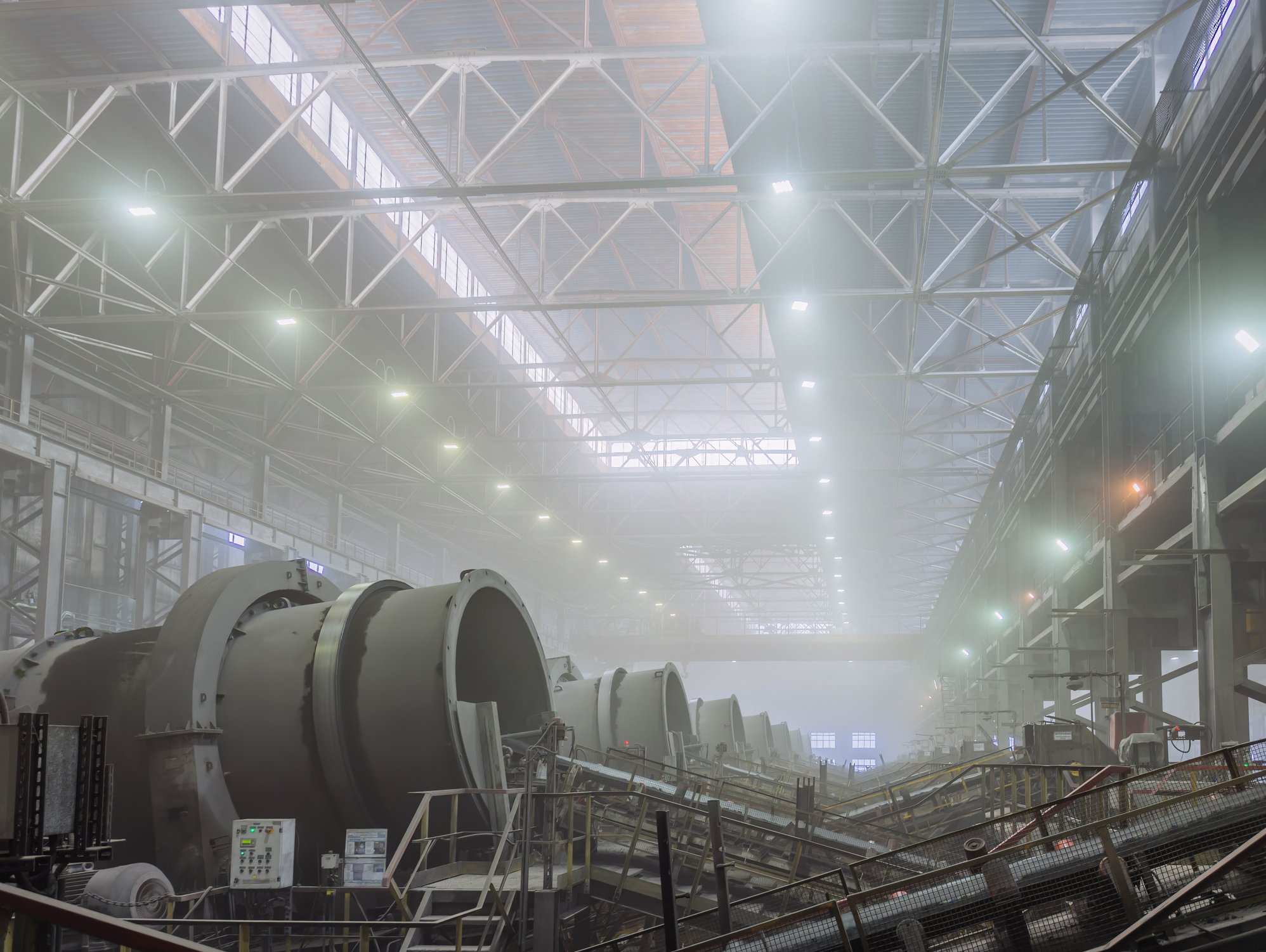
The air quality inside an industrial facility plays a crucial role in employee health, comfort, and overall productivity. When indoor air is filled with dust, fumes, and other pollutants, employees may experience a range of negative effects that impact their ability to work efficiently.
Poor air quality can lead to higher absenteeism, reduced focus, and even increased turnover rates. Understanding how air quality affects productivity can help facility managers take proactive steps to create a healthier work environment, which is what we’ll cover in this blog post.
The Impact of Air Quality on Employee Health
Poor indoor air quality in industrial facilities can have serious health consequences for employees. Constant exposure to airborne contaminants such as dust, mold, fumes, and chemicals can lead to:
-
Respiratory issues: Prolonged exposure to airborne pollutants can lead to coughing, shortness of breath, and other lung-related conditions.
-
Headaches and fatigue: Contaminated air can cause frequent headaches, dizziness, and general fatigue, which reduces an employee’s ability to stay focused and alert.
-
Discomfort and irritation: Pollutants in the air can lead to eye, nose, and throat irritation and make it harder for employees to concentrate.
-
Increased sick days: Employees exposed to poor air quality are more likely to take time off due to illness, which affects overall workplace productivity.
Air Quality Can Impact Employee’s Productivity
Beyond health concerns, poor indoor air quality can also have a direct effect on an employee’s ability to perform their job efficiently. If employees are constantly battling symptoms like headaches, fatigue, or respiratory distress, their focus and productivity naturally decline. Over time, poor air quality can:
-
Reduce mental clarity and focus: Employees may struggle to concentrate on tasks and make errors in action or judgement on the job.
-
Lower employee morale: Working in an uncomfortable environment with poor air circulation can lead to dissatisfaction and frustration among employees.
-
Increase turnover rates: Employees who experience constant discomfort due to air quality issues may seek employment elsewhere, which increases recruitment and training costs for facility managers.
Why You Should Invest in Clean Air for Your Industrial Facility
Improving indoor air quality is an investment that benefits both employees and the overall efficiency of your industrial facility. High-quality indoor air ensures that employees remain healthier, which reduces absenteeism. Plus, when employees are comfortable and not battling headaches, fatigue, or respiratory distress, they can focus better on their tasks. This can improve their overall productivity and minimize costly errors.
Clean air also contributes to stronger employee morale. When workers feel that their health and comfort are prioritized at work, their job satisfaction is likely to increase. A well-maintained facility supports the good health of its employees, which can reduce turnover and help your facility retain its experienced employees.
Additionally, a facility with high indoor air quality experiences fewer disruptions from equipment malfunctions. This is because regular cleaning is a key part of maintaining indoor air quality, and regular HVAC cleaning ensures these systems can function more efficiently. This reduces the likelihood of breakdowns and costly repairs.
How to Improve Air Quality in Your Industrial Facility
Maintenance managers of industrial facilities can take several proactive steps to improve indoor air quality and create a healthier work environment. The three most effective steps are:
1. Indoor Air Quality Testing
Conducting regular air quality tests helps identify potential contaminants and areas of concern, which allows managers to take corrective actions before they impact employees.
2. Regular Maintenance of HVAC Systems and Ducts
Ensuring that HVAC systems are in good working condition and following maintenance schedules to replace air filters and other components as needed can prevent dust, mold, and other pollutants from circulating through your facility.
3. Regular Professional Cleanings of HVAC Systems and Ducts
Hiring a professional cleaning service to deep clean air ducts and ventilation systems removes built-up contaminants and ensures that fresh, clean air is distributed throughout your facility.
Get Started with Advanced Environmental Cleaning Services Today
Don’t let poor air quality compromise employees’ health and productivity in your industrial facility. Advanced Environmental Cleaning Services (AECS) provides professional indoor air quality testing and HVAC system cleaning to help industrial facilities maintain a clean, safe work environment.
Contact AECS today for a free estimate on your air quality testing or industrial HVAC cleaning project. Call (818) 399-2417 or email fq**********@*tt.net to schedule your consultation. Let us help you create a healthier, more productive workplace for your employees.
